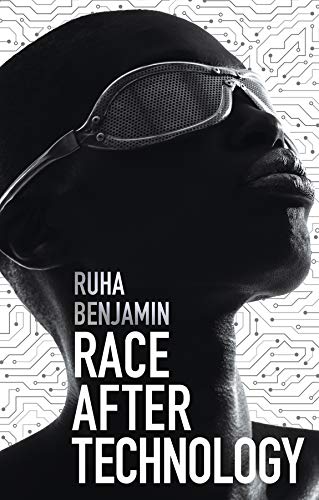Book Review - Race After Technology: Abolitionist Tools for the New Jim Code

From everyday apps to complex algorithms, Ruha Benjamin cuts through tech-industry hype to understand how emerging technologies can reinforce White supremacy and deepen social inequity.
Benjamin argues that automation, far from being a sinister story of racist programmers scheming on the dark web, has the potential to hide, speed up, and deepen discrimination while appearing neutral and even benevolent when compared to the racism of a previous era. Presenting the concept of the “New Jim Code,” she shows how a range of discriminatory designs encode inequity by explicitly amplifying racial hierarchies; by ignoring but thereby replicating social divisions; or by aiming to fix racial bias but ultimately doing quite the opposite. Moreover, she makes a compelling case for race itself as a kind of technology, designed to stratify and sanctify social injustice in the architecture of everyday life.
I have mixed feelings about this book. It doesn't contain much new data - to people who have been paying attention - but it does synthesise everything neatly to present a compelling case.
But, like many similar books, it is relentlessly American. And, almost exclusively African-American. That's not to detract from its central point, but it does rather limit the discussion.
It's incredibly well referenced - almost to the point of making it difficult to read. But - related to the above - it does have a number of cultural blind-spots. One sentence in particular assumes the reader knows what "Shondaland" is. Do you have any clue? Turns out it's an American TV production company.
For all that, it is a brilliant read and full of well-nuanced arguments. One part which took my breath away was this:
However, a universalizing lens may actually hide many of the dangers of discriminatory design, because in many ways Black people already live in the future. The plight of Black people has consistently been a harbinger of wider processes – bankers using financial technologies to prey on Black homeowners, law enforcement using surveillance technologies to control Black neighborhoods, or politicians using legislative techniques to disenfranchise Black voters – which then get rolled out on an even wider scale. An #AllLivesMatter approach to technology is not only false inclusion but also poor planning, especially by those who fancy themselves as futurists. Emphasis added
What an amazing spin on "the future's here, it's just not evenly distributed.
The end of the book goes off on a slightly weird tangent about design thinking. It feels out of place, and I'm not sure I followed the argument.
I sound grumpy, and I don't know why. Probably because I don't like my assumptions about technology challenged. This is a timely and useful book. It captures the reality of how technology creates and perpetuates a racial underclass.
I think I need to find some more UK focussed books. Suggestions welcome!
| Verdict |
|---|
- Buy the eBook on Amazon Kindle
- Get the paper book from Hive
- Author's homepage
- Publisher's details
- Borrow from your local library
- ISBN: 9781509526437
What links here from around this blog?